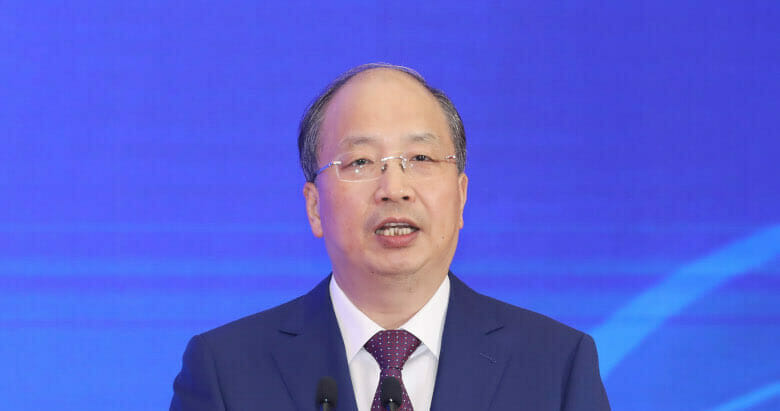
CSRC Chairman Yi Huiman is expanding financing channels for Chinese developers
Chinese regulators said they will allow the creation of real estate private equity funds under a pilot programme to boost developer financing, as the government continues to roll out measures to stabilize the country’s flagging property sector.
The new scheme, announced Monday by the China Securities Regulatory Commission (CSRC), will allow private equity investors to create fixed-asset funds to invest in commercial and residential real estate as well as infrastructure, and will encourage international investors to participate via qualified foreign limited partnerships (QFLPs).
CSRC first indicated that it would start a pilot programme for private equity real estate funds last November, when it announced a package of new measures to facilitate equity financing for developers. This week’s statement provides implementation details on the programme, although it is unclear when it will start.
Investors in the pilot funds would be mainly institutional investors and would be required to commit no less than RMB 10 million ($1.5 million) in the first round. The size of the first fund must be at least RMB 30 million, according to the statement. The CSRC will also put a 20 percent cap on the amount of the fund that individual investors will be allowed to contribute.
Another Helping Hand
The launch of the pilot programme is one of China’s latest moves to revive the hard-hit property market, Bruce Pang, head of research and chief economist for Greater China at JLL, commented to Mingtiandi.

Bruce Pang, head of research and chief economist for Greater China at JLL
Pang cited the country’s “tailor-made solutions and all-out effort to fuel investing in commercial real estate and infrastructure as well as residential property, including unfinished projects, affordable homes and rental projects.”
The programme’s QFLP feature would also allow foreign investors to diversify their asset allocation with exposure to China’s property market, Pang added. First introduced in Shanghai in 2010, the QFLP system offers a way for licensed international funds to tap into China’s private equity and venture capital markets.
“Policies could be eased further until the physical market show signs of stabilization,” according to Pang. “But we expect home sales and market sentiment to gradually recover this year from a downward spiral in 2022.”
While declining to comment on the specifics of the newly announced programme, James MacDonald, head of research for China at Savills, noted that the country’s real estate market is going through a transition period from a development focus to asset management, and from more traditional asset classes into more niche and specialised sectors.
“PE funds would offer another channel for investors with a higher risk appetite to gain exposure to the real estate market through pooled funds and professional managers,” MacDonald said in an email. “It could also bring capital to bear on either niche sectors (internet data centres, life science real estate, etc.) or undercapitalised developers in the residential sector.”
Flagging Market
The unveiling of the new pilot programme comes as Chinese officials strive to direct more capital into the country’s real estate sector, which since 2021 has been rocked by a historic housing slump and a wave of developer defaults.
Home sales plummeted by more than 28 percent year-over-year in the mainland in 2022, while property investment fell by 10 percent, the first decline since records began in 1999. New home prices ticked up in January for the first time in 12 months, though prices were still down 1.5 percent year-over-year.
In recent months, the central government has executed a U-turn from its previous approach of attacking rampant leverage in the industry, announcing a slew of measures to bolster housing demand and ease the flow of financing to developers.
After the People’s Bank of China and the China Banking and Insurance Regulatory Commission put forward a 16-point real estate rescue plan in November, the CSRC introduced five measures to accelerate equity financing for developments, including lifting a years-long ban on equity refinancing.
Chinese real estate firms raised a total RMB 101.8 billion in December, jumping 33.4 percent year-over-year, as the government ramped up support for the debt-strapped sector, according to market research firm CRIC.
The new private equity pilot programme may help address a sharp decline in US capital flows to the world’s second-largest economy amid geopolitical tensions and China’s recently lifted zero-COVID policy.
The total value of US private equity and venture capital investments in China plunged by about 76 percent year-over-year in 2022 to $7 billion from $28.9 billion, while the number of deals dropped roughly 40 percent, according to data from S&P Global Market Intelligence.
Leave a Reply